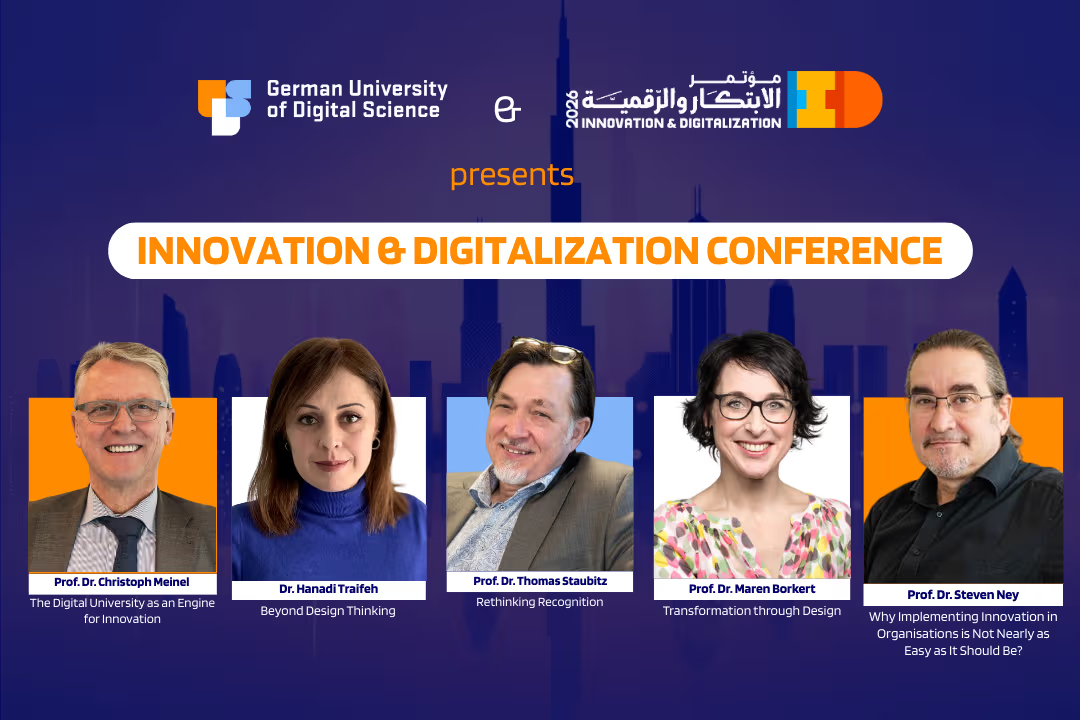
Digital Science Unveiled Reimagining Research, Teaching, and Responsibility
Author
Christoph Meinel and Mike Friedrichsen
The Digital Revolution in Higher Education
The digital revolution is fundamentally reshaping the landscape of science and higher education. What was once a stable system of disciplinary sciences is now marked by radical change.
At the heart of this transformation is the Digital Science concept that goes far beyond the mere use of digital tools.
Digital Science represents a paradigm shift in research and teaching. Instead of functioning only as a repository of knowledge, science is evolving into an open and collaborative platform for knowledge production, innovation, and societal impact.
What Is Digital Science?
At its core, Digital Science is an independent scientific approach. It involves analyzing, developing, and designing forward-looking practices in research and education within the context of digital transformation
Digital technologies are not just tools, but integral and transformative dimensions of scientific thinking and action.
Key drivers of this shift include Artificial Intelligence (AI), Big Data, algorithmic processes, and simulations. Together, these technologies are transforming the way scientific knowledge is produced, validated, and applied.
Increasingly, science is becoming data-driven and exploratory rather than solely hypothesis- or model-driven.
The Three Dimensions of Digital Science
Digital Science can be understood through three interconnected dimensions of change:
1. Epistemic Processes
Machine learning, natural language processing, and Big Data are expanding research far beyond traditional methods.
Knowledge is now generated through algorithmic processes and exploratory data analysis—accelerating the speed, depth, and scope of discoveries.
2. Scientific Communication and Quality Assurance
Traditional, sequential review processes are giving way to digital and participatory formats such as
- Open peer review
- Preprint servers
- Citizen science
New evaluation standards, including digital metrics and alt-metrics, are emerging to measure scientific impact more effectively.
3. Social Resonance and Responsibility
Research outputs now reach the public almost in real time, influencing social and political debates.
This shift increases the need for transparency, ethical reflection, and responsibility in how science is conducted and communicated.
Digital Science: The Backbone of the University of the Future
Universities are evolving into digital agoras-open, dynamic marketplaces for knowledge, innovation, and discourse.
Digital Science is the intellectual and operational foundation of these new academic landscapes.
In teaching, it enables adaptive formats such as
- MOOCs → https://german-uds.de/study/programs/mba
- Hybrid learning spaces
- Project-based courses across disciplines.
In research, it promotes distributed, interdisciplinary collaboration and new forms of
- Open knowledge production → https://german-uds.de/research-centers
Opportunities and Challenges Ahead
Digital Science creates enormous opportunities for higher education and research.
It fosters:
- Flexible cooperation networks
- Stronger institutional resilience
- Participation through open data and citizen science
However, significant challenges remain.
Universities must safeguard:
- Data security
- Scientific integrity
- Equitable access
Potential risks include over-reliance on technology, opaque algorithms, and the weakening of core academic principles.
Managing AI responsibly and addressing digital divides will be critical for the future of universities.
Final Thoughts
Digital Science is not merely an extension of existing academic practices-it represents a fundamental shift in how science is conceived, applied, and shared.
It has the potential to redefine the future of universities and build strong bridges between research, education, and society.
At German UDS, we see Digital Science as the foundation of academic innovation, leadership, and digital responsibility in the 21st century.


